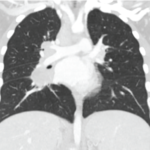On May 11, ACR leadership representatives from the Board of Directors, the Affiliate Societies Council and the Committee on Government Affairs and RheumPAC will take the ACR’s policy messages to Capitol Hill for the Advocacy Leadership Conference. There is power in numbers, so we hope you will participate in our Virtual Hill Day by visiting…



